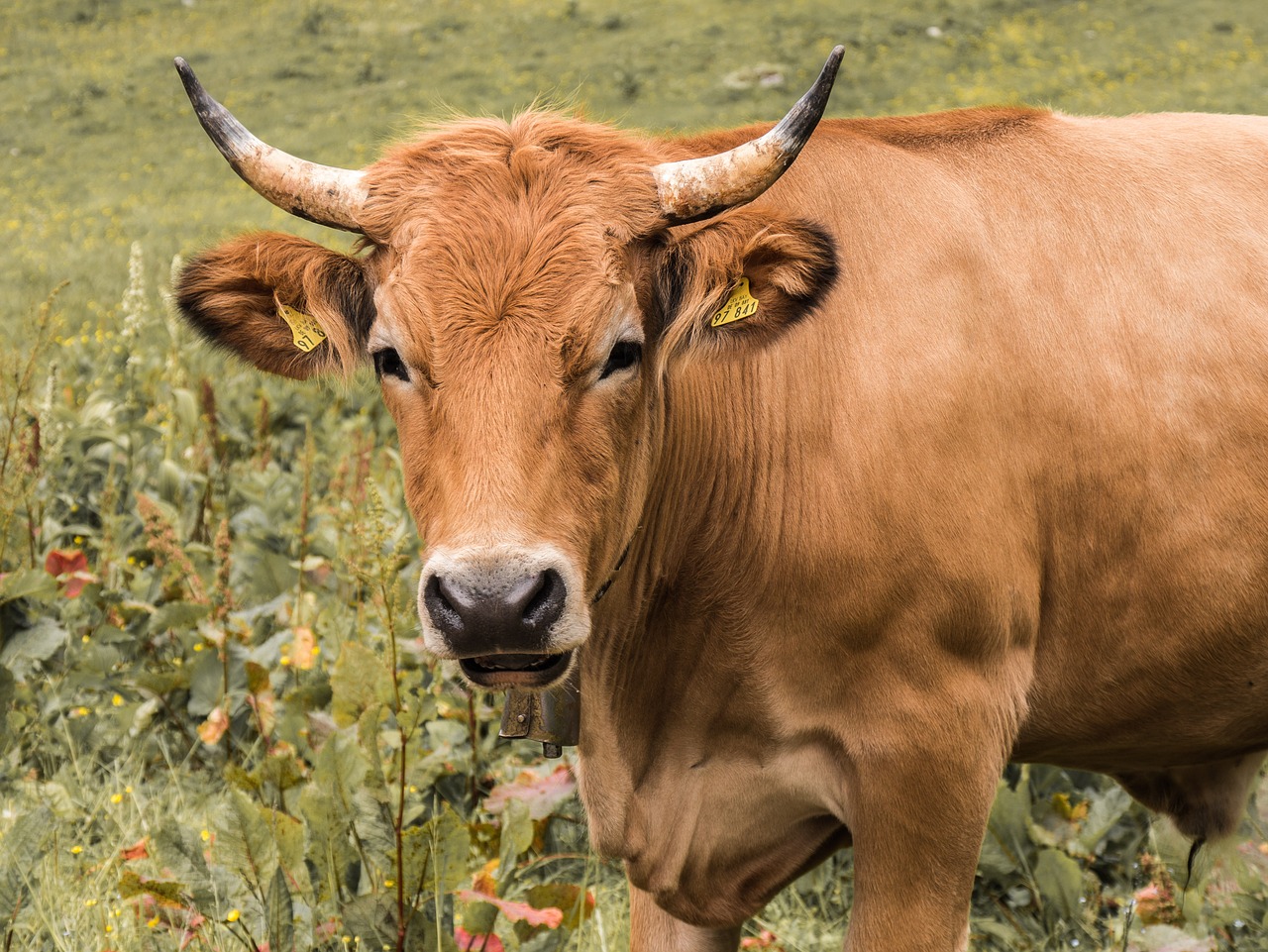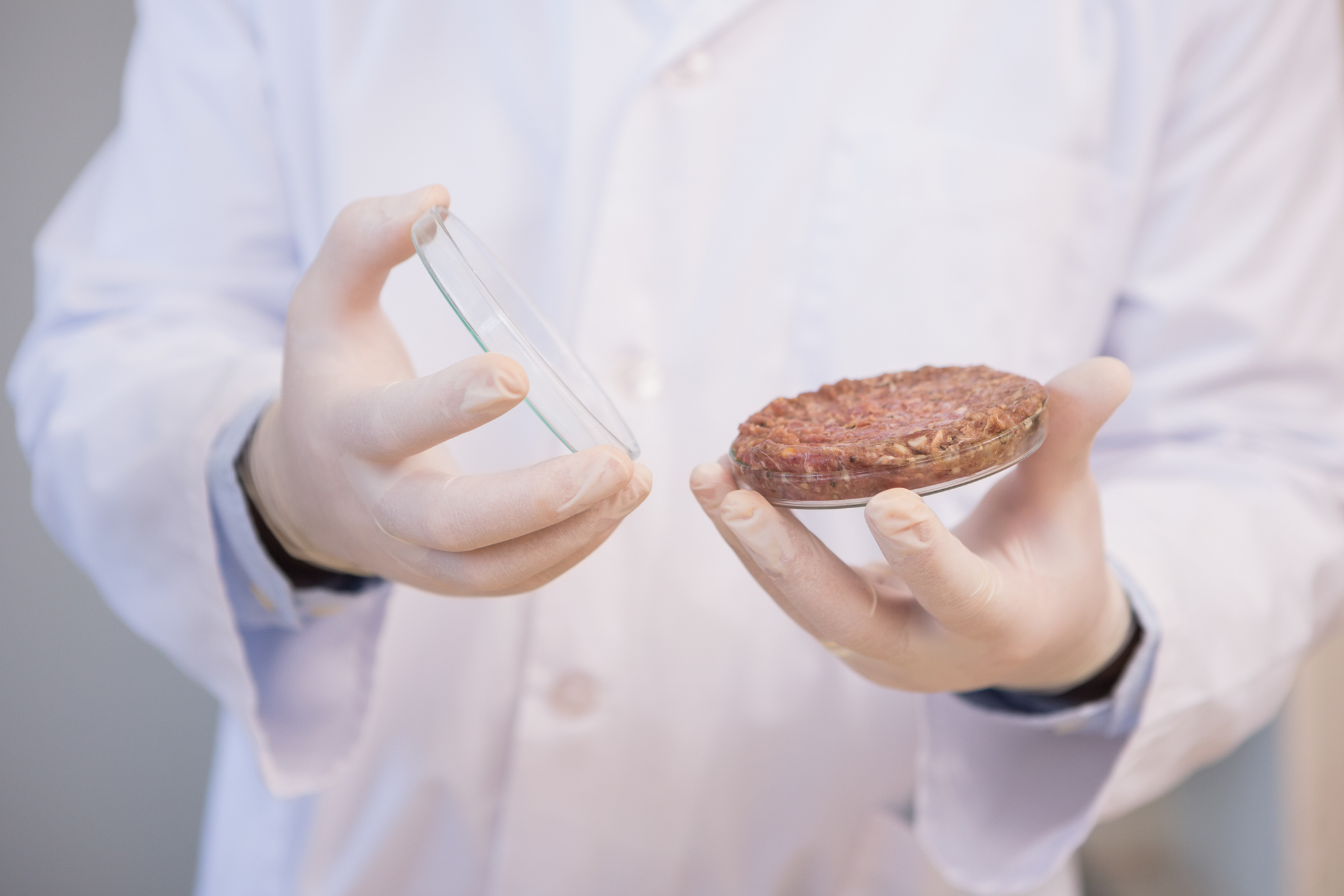Artificially-grown meat has exploded onto the food scene as of late, with several companies in the process of developing different lab-produced meat, from steak to seafood.
Thought of as a way to get all of the flavor and texture of meat without the harmful environmental impact, it turns out that lab-grown meat may not live up to all the hype. Although the method has been hailed as a more sustainable food option, new research warns that some of the processes used to create the meat could be detrimental to the environment.
The study, from the Livestock, Environment and People (LEAP) programme at the Oxford Martin School, compares the greenhouse gases produced by lab-grown meat to that of farm-raised beef.
“There has been a great deal of public interest in cultured meat recently, and many articles highlight the potential for substituting cattle beef with cultured meat to provide an important climate benefit,” explains lead author Dr. John Lynch.
According to the findings, published in Frontiers in Sustainable Food Systems, the carbon dioxide from the energy used to make cultured meat has the potential to be more damaging in long term than methane from cattle.
“We show that it is not yet clear whether this is the case, partly because of uncertainties about how cultured meat would be produced at scale,” continued Lynch. “An important issue in comparing farmed and cultured beef is that the different warming impacts of greenhouse gases are also not well accounted for in the standard measure used in carbon footprints.”
Several studies have found that large reductions in meat-eating are needed to reduce greenhouse gas emissions and avoid climate change. Lab-grown meat was thought of by some experts as having a smaller environmental footprint than conventional cattle farming, but authors of the study say that’s misleading as methane and carbon dioxide have different impacts on the climate over time.
“Per tonne emitted, methane has a much larger warming impact than carbon dioxide. However, it only remains in the atmosphere for about 12 years, whereas carbon dioxide persists and accumulates for millennia,” said study co-author Prof Raymond Pierrehumbert.
Although beef production is a major source of greenhouse gases, the scientists at the Oxford Martin School say that artificially grown meat is not necessarily superior in its impact on the environment.
“This is important because while reducing methane emissions would be good – and an important part of our climate policies – if we simply replace that methane with carbon dioxide it could actually have detrimental long-term consequences,” warns Lynch.
As a result, the study found that the environmental benefits of large-scale production of artificial meat depend on the means of power generation used to make the product in the factories and labs.
Lynch concludes, “The climate impacts of cultured meat production will depend on what level of sustainable energy generation can be achieved, as well as the efficiency of future culture processes.”
Simply replacing cattle farming with cultured meat should not be viewed as a solution to the issue, with experts warning that more research is desperately needed to improve the impact of lab-grown meat on the environment.











Join or login to leave a comment
JOIN LOGIN